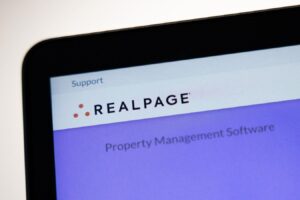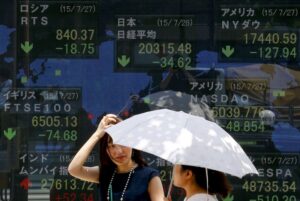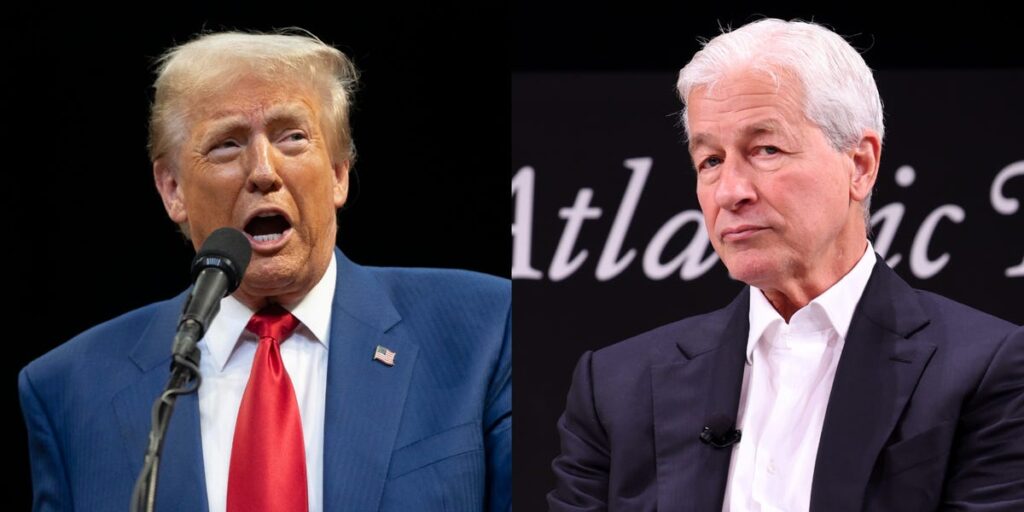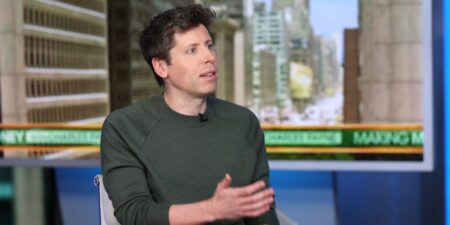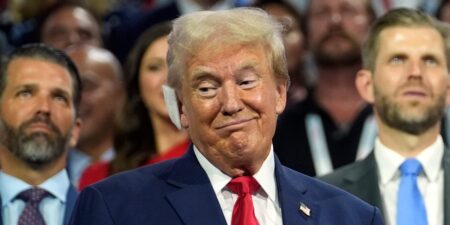- Business titans like Jamie Dimon and Bill Gates reportedly back Kamala Harris — but not publicly.
- It may be driven by fears of retribution from Trump and what a second term would bring.
- But it could also be that wading into politics is bad for business.
Both Vice President Kamala Harris and former President Donald Trump have won support from America’s business titans and CEOs. But not all of that support is being declared in public.
On Tuesday, the New York Times reported that both JPMorgan CEO Jamie Dimon and Microsoft founder Bill Gates support Harris, but won’t say so publicly.
Gates reportedly donated $50 million to a pro-Harris “dark money” nonprofit group that, unlike political action committees, is not required to disclose its donors. A spokesperson for Gates did not respond to Business Insider’s request for comment, but in a statement to The Times that didn’t acknowledge the donation, he said that “this election is different” for him.
Dimon has reportedly told associates that he supports Harris, but won’t go public out of fear of retaliation.
All of which raises the question: What’s there to be afraid of?
There’s certainly reason to believe that Trump, if elected, would pursue some degree of retribution against those who he believes have wronged him. As he’s mounted his third campaign for the presidency, he has at times emphasized “revenge” as a campaign theme, and he hasn’t shied away from targeting individual companies. In one recent instance, he threatened to impose a 200% tariff on John Deere if they go forward with moving some of their manufacturing facilities to Mexico.
As president, he frequently criticized — often via tweet — individual companies who he disagreed with, which occasionally affected stock prices.
But Jeffrey Sonnenfeld, a professor at the Yale School of Management and the founder and president of the Chief Executive Leadership Institute, says that the idea of retribution is “overstated” — and that avoiding wading into politics has long been the norm for chief executives, most of whom have traditionally been Republican.
“They’re more concerned about alienating customers and employees needlessly,” Sonnenfeld, dubbed the “CEO whisperer” for his relationships with America’s CEOs, told Business Insider. “Everybody’s afraid of alienating large blocs of their own constituency. That’s what they’re afraid of. They’re not afraid of… Trump.”
Politics, as it turns out, may just be bad for business these days.
“They don’t see themselves as public officials. They don’t think that that’s their calling, that that’s their strength,” Sonnenfeld said. “So they don’t want to get involved publicly in social issues, if they don’t have to.”
Joe Evangelisti, a spokesman for JPMorgan, told Business Insider that Dimon and his company are not fearful of retribution from either Harris or Trump, but that Dimon wants to avoid having his comments “weaponized by the left or the right.” He added that Dimon is happy to work with either candidate if elected and prefers to talk about policies rather than partisan politics.
It’s not hard to see why Dimon would feel this way, given recent events. After he said in January that Trump was “kind of right” about NATO and immigration, he faced a firestorm of controversy. Dimon was later the subject of speculation over whether he would serve in Trump’s administration, and earlier this month, he denied Trump’s claim that he had endorsed him.
But Dimon also has to ensure he has a good-enough relationship with Trump.
“I would never say that,” Dimon said when asked if his position was “anything but Trump” last year. “You know, because he might be the president. I have to deal with that too.”
On the flipside, it’s also possible that there are pro-Trump CEOs who don’t want to alienate liberal customers and employees. In an appearance on CNBC’s “Squawk Box” on Wednesday, billionaire hedge fund manager Bill Ackman suggested that there’s a well of silent Trump support among CEOs.
“One of the few benefits of supporting Trump publicly is many, many people come up to me, CEOs, and say, ‘Bill, thank you for saying what you’re saying, I wish I were similarly situated where I could, but I have — you know, all my employees would quit,'” Ackman said.
Still, Harris has received a notable degree of support from the business community, the most vocal example being investor Mark Cuban.
According to Sonnenfeld, the Trump-related corporate activism of recent years — including around the January 6 insurrection — has been a historical anomaly driven by a sense that the country is in a moment of crisis.
“If there’s something catastrophic, they will engage,” Sonnenfeld said of CEOs, adding that we could see executives become more vocal if Trump were to lose the election and refuse to concede.
“There’s a pretty high probability that if Trump isn’t a clear winner, there’s going to be a lot of confusion, if not a constitutional crisis,” Sonnenfeld said. “And then they will get involved.”
Read the full article here


